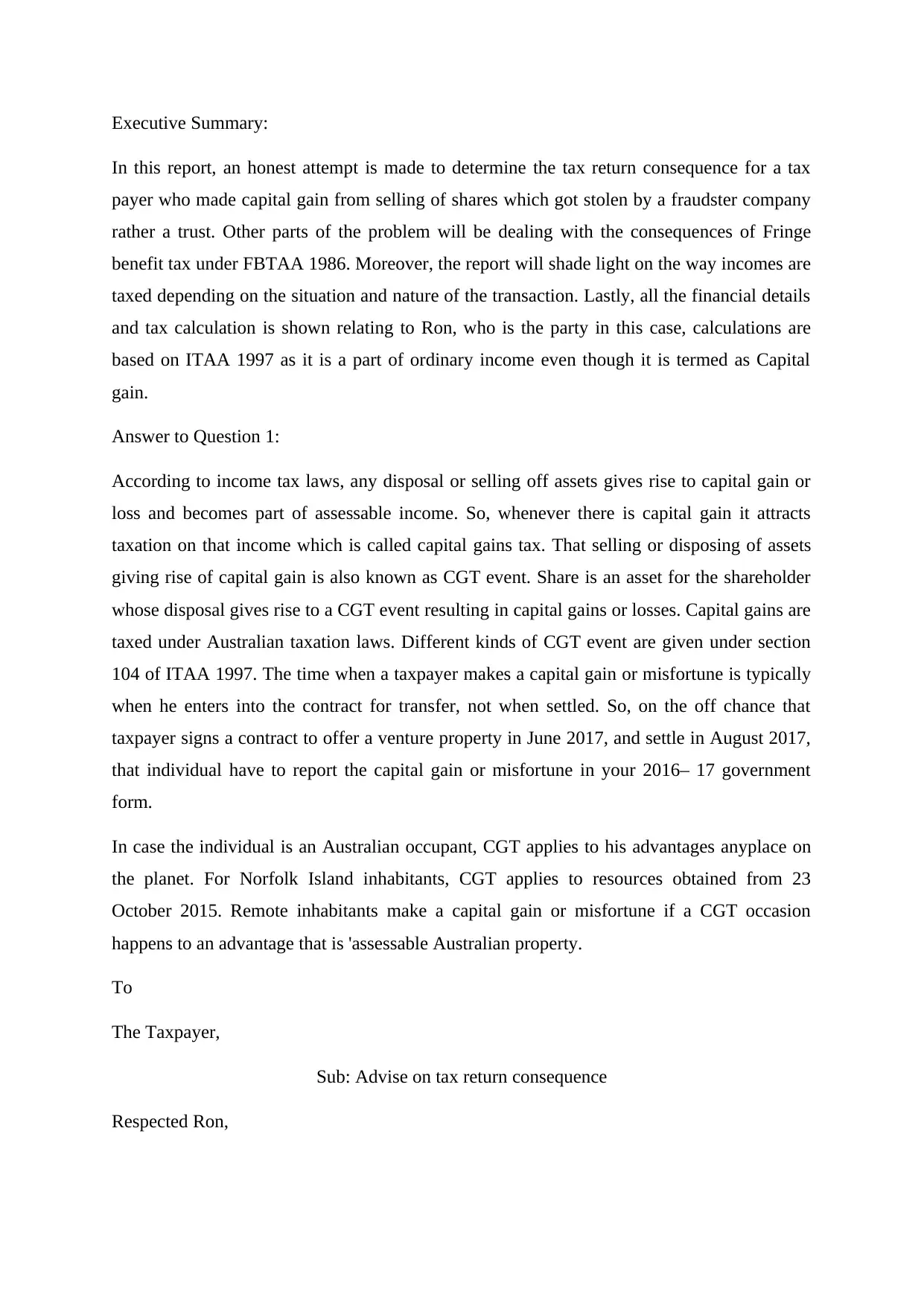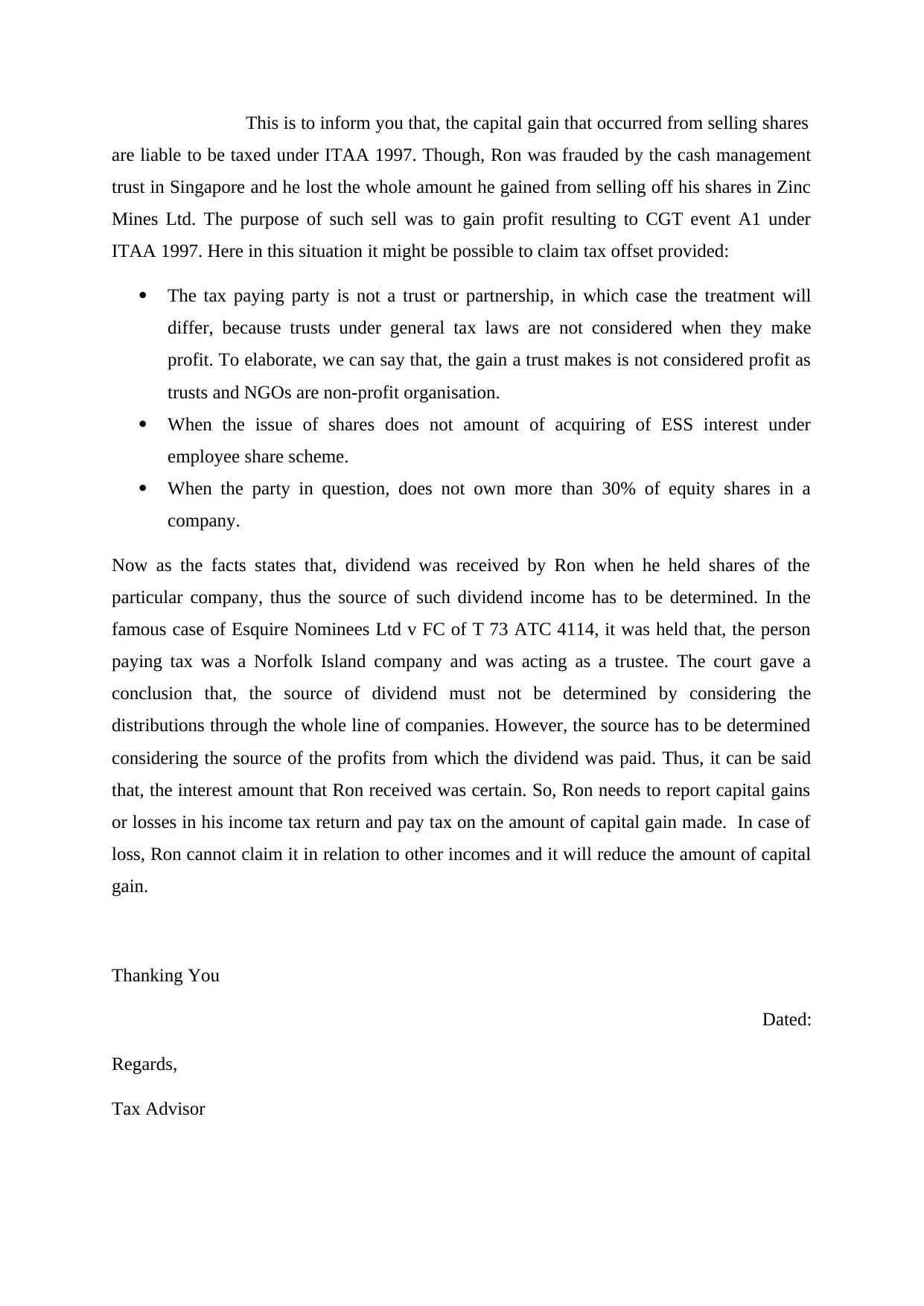UNSW TABL 5551 Taxation Law: Comprehensive Report on Tax Implications
VerifiedAdded on 2023/06/04
|2
|760
|238
Report
AI Summary
This report provides a detailed analysis of the tax return consequences for a taxpayer who experienced capital gains from share sales but was subsequently defrauded. It delves into the implications of Fringe Benefit Tax under the FBTAA 1986 and elucidates how different incomes are taxed based on the transaction's nature. The report includes financial details and tax calculations related to Ron, the taxpayer in question, with calculations grounded in the ITAA 1997, classifying the capital gain as ordinary income. It addresses the taxability of capital gains, potential tax offsets, and the treatment of dividend income, referencing relevant case law. Furthermore, it offers guidance on reporting capital gains or losses in income tax returns, emphasizing that losses can only offset capital gains, not other forms of income.
1 out of 2








![[object Object]](/_next/static/media/star-bottom.7253800d.svg)